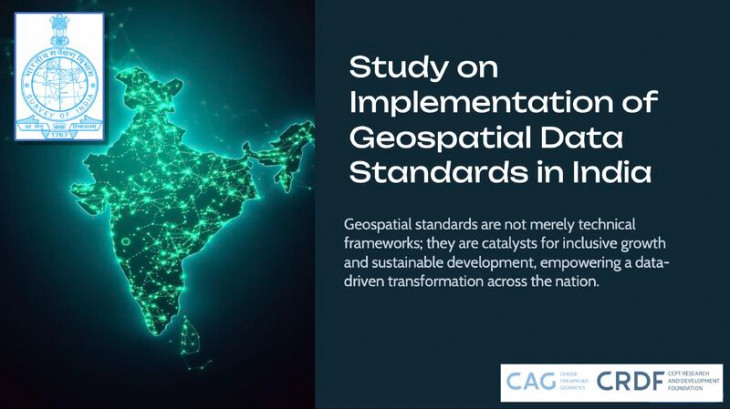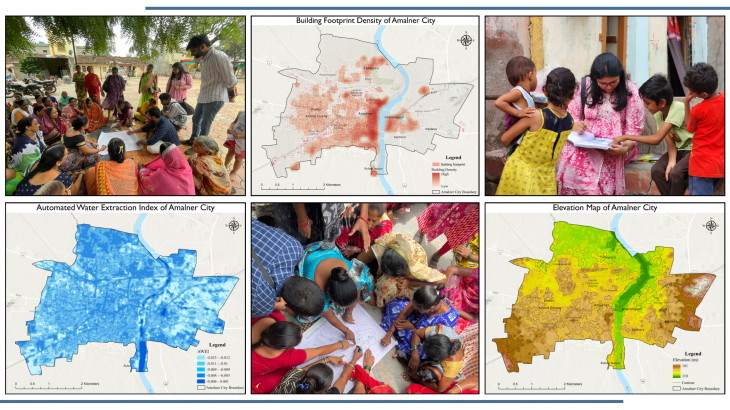
Developing GeoAI-Enabled Flood Vulnerability Model for Amalner, a Blueprint for India's small Towns

Project details
Mahila Housing Trust
2023 - 2024
Research
CAG
A collaborative project between the Center for Applied Geomatics (CAG) and Mahila Housing Trust (MHT). This project represents an effort to address the escalating challenges of climate action and sustainability associated with floods in Amalner, Maharashtra, using the GeoAI model. Floods, acknowledged as one of the most devastating hydro-meteorological disasters globally, not only claim human lives but also disrupt socio-economic stability. According to the United Nations Office for Catastrophe Risk Reduction, 157,000 flood-related fatalities, comprising 11.1% of all global disaster fatalities, have been reported. Projections suggest a significant increase in the frequency and severity of floods by 2050, with anticipated losses reaching approximately US$ 1 trillion. This situation is exacerbated by the interplay of climate change, urbanization, and population growth, particularly in smaller towns like Amalner, where unplanned growth distorts natural drainage systems, making them susceptible to waterlogging and flash floods.
The urban poor, with their limited adaptive capacity, bear a disproportionate burden of these challenges. Consequently, the project's objective is to unite the public, government, and researchers on common ground, emphasizing the importance of spatial flood mapping and modelling at the regional level. CAG is actively engaged in developing and implementing a GeoAI-enabled flood vulnerability model for Amalner City. Data inputs are sourced from open-source satellites, the government, and the local community through participatory GIS. The project's positive outcomes are diverse, encompassing improved flood management, safeguarding natural drainage systems through land-use mapping, and enhanced water security through the implementation of recharge wells. In alignment with Sustainable Development Goals (SDGs) 3, 6, 11, and 13, the project underscores its commitment to global agendas for sustainable development.
More Projects from CAG

